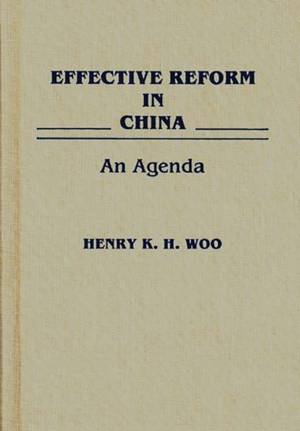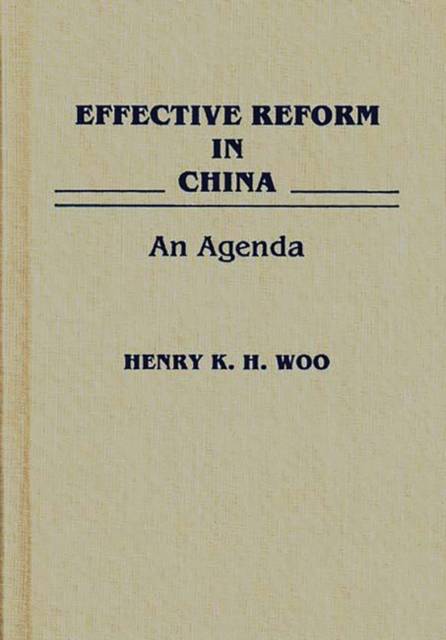
- Afhalen na 1 uur in een winkel met voorraad
- Gratis thuislevering in België vanaf € 30
- Ruim aanbod met 7 miljoen producten
- Afhalen na 1 uur in een winkel met voorraad
- Gratis thuislevering in België vanaf € 30
- Ruim aanbod met 7 miljoen producten
Omschrijving
A deepening economic crisis and a demoralized work force are the primary issues of concern in Henry K.H. Woo's examination of the overall direction of reform in China. Untenable reform initiatives during the 1980s which led to public disillusionment, financial chaos, and ultimately to the bloody collision between government and students in 1989 are closely scrutinized with a commitment to their remedy. Woo's recommendations for viable reform are grounded in his assertion that China's problems can be helped only by recognizing the essential nature of China as a socialist country whose economy is primarily agricultural and is still developing.
The major portion of the text develops reform strategies that both acknowledge China's cultural and political framework and challenge existing conventional tenets of developing economies. China as a stable agriculture-first economy in which there will be eventual implementation of price decontrol is Woo's vision, a concept that will no doubt stimulate debate among economists, sinologists, scholars, and policymakers interested in or integral to China's future.Specificaties
Betrokkenen
- Auteur(s):
- Uitgeverij:
Inhoud
- Aantal bladzijden:
- 272
- Taal:
- Engels
Eigenschappen
- Productcode (EAN):
- 9780275937409
- Verschijningsdatum:
- 30/03/1991
- Uitvoering:
- Hardcover
- Formaat:
- Genaaid
- Afmetingen:
- 142 mm x 220 mm
- Gewicht:
- 485 g

Alleen bij Standaard Boekhandel
Beoordelingen
We publiceren alleen reviews die voldoen aan de voorwaarden voor reviews. Bekijk onze voorwaarden voor reviews.











